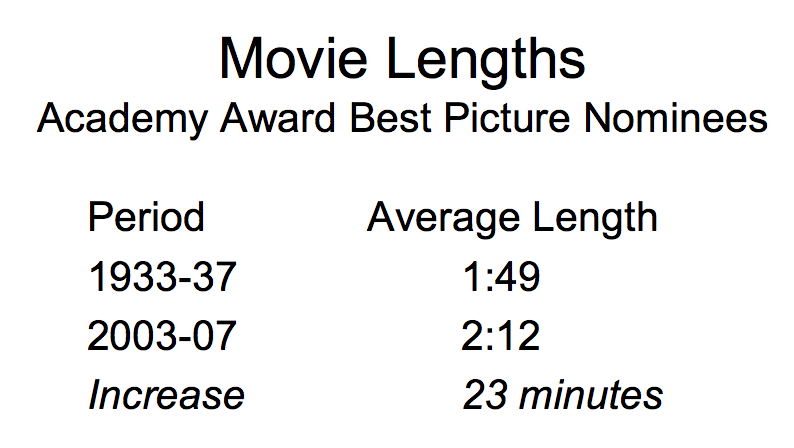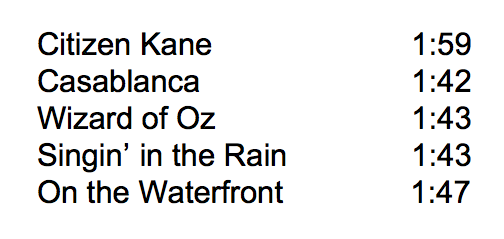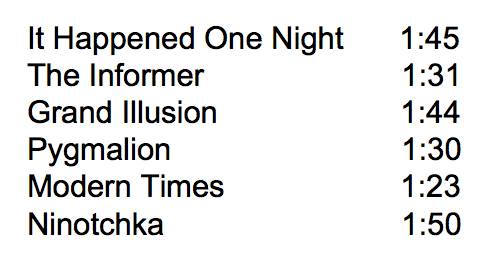The movie There Will be Blood has been hailed with near unanimous critical praise. The word among the cognoscenti is that it's a lock for Best Picture. Thus it was with high expectations that I recently attended a showing. Well, Oscar sure thing or not, the principal accolade it got from me during its two hours and thirty-eight minutes was my most-glances-at-my-watch-during-a-movie award. Seventeen glances, if memory serves me.
Which got me to thinking, are not movies longer than they used to be? Or have to be? Or am I just emulating the younger generation; is it that my attention span is getting shorter?
I remember that during the heyday of the Hollywood studio system, the directors were simply employees of the studios (along with the actors and all the other talent). They were given a budget, and they adhered to it or else they found themselves on a new milk route in the morning. Louis B. Mayer (or Harry Cohn, or Jack Warner, or any of the studio bosses) would tell the director that he's got this much money and that many people to bring in a 90-minute movie, and that's it.
Today, of course, the whole system has changed. In particular, the director is not only not an employee, he's an auteur. And more often than not, he has final-cut rights. So it seems clear that in this new world of film-making, there are few constraints on a movie's length. Few checks and balances. Is this the case? Are movies indeed longer than they used to be?
To attempt to answer this question other than anecdotally, I decided to look at the lengths of Academy Award nominees in recent years (2003-2007) and compare them with lengths of movies made 70 years ago at the height of the studio system (1933-1937). Here are the results:
So to the extent my samples are representative of the entire industry, movies are longer than they used to be, 23 minutes longer. (Whatever happened to the fabled cutting-room floor?)
Which brings up another question: do great movies have to be two hours-plus? I think the answer is clearly no. Yes, it's true that some of the greats have been unusually long:
But are three-hour lengths needed to make a classic? Or even two hours? Many (most?) of the great classics have been brought in at sub-two-hour lengths:
And if we look at some of the classics (other than Oz and GWTW) from the studio-dominated 1930s, almost all were shortish. As examples:
Another interesting illustration of the bloat that has distended movies can be discerned by comparing originals with remakes. The 1934 Cleopatra (Claudette Colbert) came in at a brisk 1:42. In 1963, Elizabeth Taylor's version of Cleopatra limped in at 3:12 , one and a half hours longer (with a million more extras). Or Charles Laughton's Mutiny on the Bounty took 2:12, while Marlon Brando's remake needed 3:05.
In 1930, almost two-thirds of the American population went to the movies every week. Today, that number is less than 10 percent. This startling decline in the role of movies in our entertainment lives has been explained by many analysts in many ways. I mention it here only because in the early 1950s, when television began to exact its devastating toll and movie attendance went into free fall, Hollywood responded with the slogan, "Movies are Better Than Ever."
Are movies better than ever? Don't know. But I do know that movies are longer than ever. Is longer better? Not necessarily. In fact, all I can say with complete conviction is that longer is... longer.